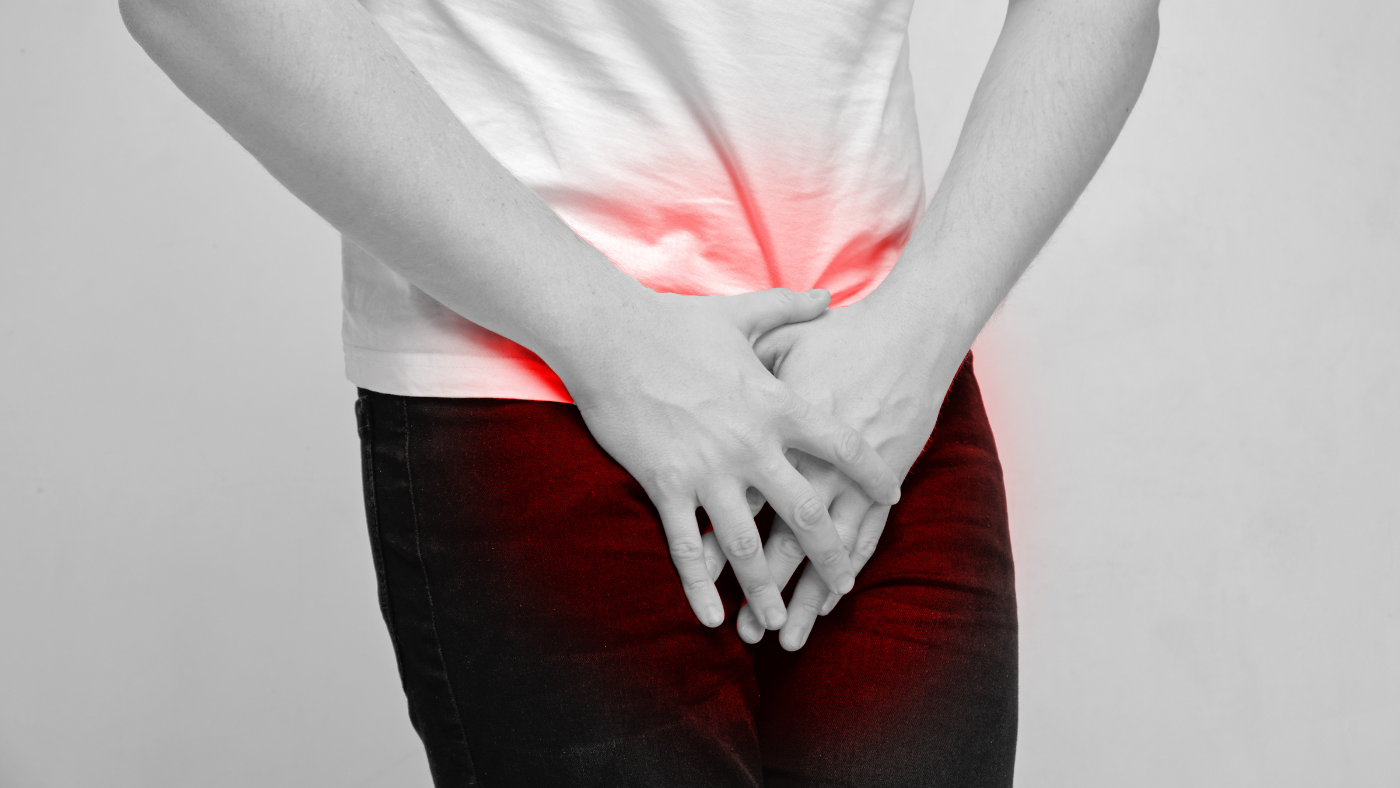Waitangi Day Special 🇳🇿 FREE $10 Voucher - Use code NZ10 at checkout
Waitangi Day Special 🇳🇿 FREE $10 Voucher - Use code NZ10 at checkout
Supplements
Shop by Health Concern
Shop by Category
Shop by Health Concern
Shop by Category
Skincare
Shop by Skin Type / Concern
Shop by Category
Shop by Skin Type / Concern
Shop by Category
5 Natural Ways to Shrink Your Prostate
June 13, 2022 4 min read

If you are one of the 14 million men who suffer from an enlarged prostate due to benign prostatic hyperplasia (BPH), it is understandable that you would like to find a way to shrink your prostate or at least reduce its symptoms.
You may wonder how to take the prostate back to a younger, more normal size that doesn’t keep you running to the bathroom all night long.
When enlarged, the prostate gland (which is located at the base of the bladder) can put pressure on the urethra and cause symptoms such as frequent urination and nighttime urination. The growing prostate can also keep the bladder from completely emptying and can affect the flow of urine, making for a weaker flow, starting and stopping of the flow, and urinary tract infections. More severe cases of BPH can make it difficult to urinate.
Even though BPH is not cancerous, it does affect a man and his family’s quality of life. If you are waking up several times a night to urinate, chances are you are waking up your family members at least some of the time. Having to stop activities due to urinary urgency can have an effect and cause stress and annoyance for everyone involved.

Growth of the prostate with age is normal. One-third of men experience symptoms of an enlarged prostate by age 50. By age 70, 70 percent of men are affected, according to Johns Hopkins. So what can you do about it? Actually, there is a lot you can do. Even though the prostate does grow with age, there are things you might be doing that fuel this growth, just as there are lifestyle habits, dietary factors and supplements that can fight and help you manage this growth. Check out these five natural ways to shrink the prostate gland.
No. 1: Get Moving
Several studies have concluded that moderate or vigorous exercise is very helpful in reducing risks and symptoms of BPH. Not only does exercise reduce risk of BPH and urinary tract symptoms, but also it provides benefits for your heart health. This can help you prevent other health and sexual problems such as erectile dysfunction.
No. 2: Slim Down
Obesity is one of the largest contributors to BPH. If you are overweight, one of the best ways to drop your prostate problems is to drop some pounds. Losing weight can help improve your urinary symptoms. A bonus is that weight loss also reduces your risk for prostate cancer.
The Journal of Urology published a study that found that overweight men have an increased risk of BPH. Abdominal fat in particular may play a role. The researchers examined 5,667 men ages 55 and older. They assessed the risk of BPH for each man each year for seven years. All of the men who had a body mass index above 25 had an increased risk for BPH that ranged from 13 percent to 29 percent. They evaluated abdominal obesity by dividing waist measurement by hip measurement. The men who had a ratio of 1.05 or higher had an increased risk of BPH of 45 percent.

No. 3: Strive for Balance (hormonal, that is)
Experts believe that the hormone dihydrotestosterone (DHT) promotes the growth of prostate cells. When testosterone and estrogen are imbalanced, DHT activity can increase and encourage the growth of prostate cells. That is why it is important to keep an eye on and manage your hormones, which you might have noticed begin to change after the age of 40.
Both exercising and maintaining a healthy weight help to keep your testosterone and estrogen balanced, but there are natural supplements that are worth looking into as well. Both pygeum and plant sterols like as beta-sitosterol contain active components that can inhibit DHT production. Another supplement, 3,3’-diindolylmethane (DIM), naturally supports the balance of testosterone and estrogen and promotes normal prostate size.
No. 4: Eat Better
Your diet also greatly affects your prostate health. If you follow the best diet for prostate health (one that is low in red meat and higher in fish or vegetable sources of protein, fiber, fruits and vegetables), you can reduce your risk factors for BPH. Foods that promote good prostate health include those high in omega-3 fatty acids like salmon, tuna and sardines. Lycopene-rich tomatoes benefit the prostate, too.
What you should not eat is also important. Avoid foods that your prostate hates such as red meat, dairy, wheat, fried foods and sugar.
You also need to drink well. Stay hydrated, and limit your alcohol consumption to no more than two drinks per day. Drinks like green tea and cranberry, which are both also available in supplement form, are beneficial as well.

No. 5: Try Natural Supplements
There are many prostate supplements that can benefit an aging prostate and support normal urinary health, like the abeeco Prostate Formula. When shopping for supplements, look for formulations that include ingredients that can help with overall prostate health. As already mentioned, there are several supplements that help support hormone regulation. One of them, pygeum, has also been found in studies to be useful in reducing BPH symptoms. While studies have not found that pygeum actually shrinks the prostate, it does help offer relief of urinary symptoms. Curcumin is another supplement that can help regulate the inflammatory processes that support health of the prostate. Saw palmetto is a well-researched supplement that studies have found as effective as popular drugs for BPH without causing the scary side effects of prostate drugs.
The Next Step
Hopefully, these five natural steps to better prostate health offer relief from your prostate symptoms. Even though there is a lot you can do to help manage your prostate health by changing your diet and lifestyle, prostate symptoms sometimes linger. If you have tried everything from exercise to weight loss to diet and supplements and your symptoms do not improve, you should see your doctor for further testing.
Your doctor may suggest other treatments such as medication or surgery. There are risks associated with these treatments, so make sure you make an informed decision and ask a lot of questions before starting any treatment.
Chances are you will find that improving your diet and lifestyle will make a positive difference in your prostate health and in the way you feel in general. If you at least get a better night’s sleep, that alone has to improve your mood, energy and outlook on life.
By Dr. Geo Espinosa
Disclaimer: This article provides general information only and is not a substitute for medical advice. Abeeco products are for cosmetic and dietary purposes. Our supplements & tonics aren't intended to diagnose, treat, cure, or prevent any disease. Consult a healthcare professional for medical advice or before starting new supplements. Individual results may vary. Always follow product directions. Our products are not intended to treat or cure any medical condition.
